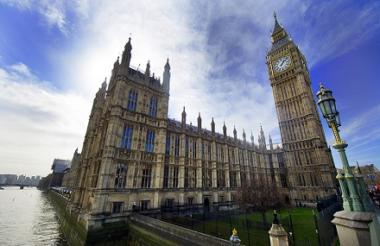Some 29 charity sector leaders have written a joint letter to the chancellor, calling on him to implement a series of measures to tackle the cost-of-living crisis.
The signatories urged Jeremy Hunt to act in four areas: benefits, public services, international development spend and energy bills.
The chancellor has pushed back publication of the government’s fiscal plan to 17 November, instead of 31 October as originally planned.
The chief executives of Charity Finance Group, Bond, NCVO and the Directory of Social Change are among those who signed the letter.
Last week, Hunt acknowledged that families are “struggling with rising prices and higher energy bills” and pledged to “prioritise help for the most vulnerable while delivering wider economic stability and driving long-term growth that will help everyone”.
The letter states that Hunt now has an opportunity to demonstrate he is “listening to people’s concerns” and “willing to make the hard choices to support them during this time”.
Increase benefits in line with inflation
The letter said that charities have witnessed the “devastating impact” of increased costs on low-income households.
It added that government must ensure that “all relevant benefits” are raised in line with inflation to ensure that these individuals are not worse off.
“Uprating benefits only in line with earnings would amount to the biggest permanent real-term cut to the basic rate of benefits ever made in a single year. People are already going without as the cost of essentials soar. They need certainty that they will not be pushed further into hardship during this winter and beyond.”
Invest in public services to deliver inclusive growth
The signatories believe that effective services will be key in tackling the cost-of-living crisis.
“Greater investment in the delivery of public services is an opportunity to drive inclusive, local economic growth,” they wrote.
“Charities, volunteers and local authorities work closely together across the UK to ensure that people can access the support and services they need to live their lives well. But to continue working this way for the long term, local government needs a sustainable financial settlement to provide targeted and effective crisis support for those most in need.”
Cuts to local councils’ budgets, coupled with rising demand for services, have led to poor service delivery and instability, they said. This has resulted in local charities having to step up, which is “not sustainable”.
“Charities can be important partners in the design and delivery of public services, but charity finances cannot replace government funding. The current crisis is already pushing up demand for services, particularly amongst communities that receive the least financial investment. It’s essential that sufficient funding is available to deliver services at the scale and quality required, so people can access the support they need.”
Protect the UK’s official development assistance budget
As part of its spending review in November 2020, the government cut aid spending to 0.5% of gross national income, meaning that it no longer meets the United Nations recommended target of 0.7% spent on official development assistance.
The letter argues that with conflicts, global warming and Covid-19 driving up humanitarian and development needs, the government ought to protect aid budget from further cuts.
It continued: “Despite UK aid being set as a percentage linked to the UK’s economic performance, it has already suffered nearly a 30% reduction since 2020 when the lower 0.5% gross national income target was introduced. It’s not too late to undo the damage that is being done to both the lives of some of the most marginalised people around the world, and the UK’s reputation as a reliable and trusted global partner.”
Ensure charities receive additional support with their energy bills beyond April 2023
The government is currently discounting charities’ energy bills through its Energy Bill Relief Scheme until the end of March 2022.
The letter said that while this support is crucial, charities facing acute financial pressures need certainty in the long term.
“The short-term relief is welcome, but, like businesses, charitable organisations need to be able to plan beyond the short term on how they will continue their vital work. Unlike businesses, many charities are facing sharply increasing demand for help from the people and communities they support, but are not able to pass increased costs onto their service users and must meet their costs in other ways,” it added.
“Any additional clarity on medium and longer-term support will help with that planning. Charitable organisations must have the best possible chance to survive if they are to keep doing what they do so well – making a positive difference to people’s lives.”
Related articles












